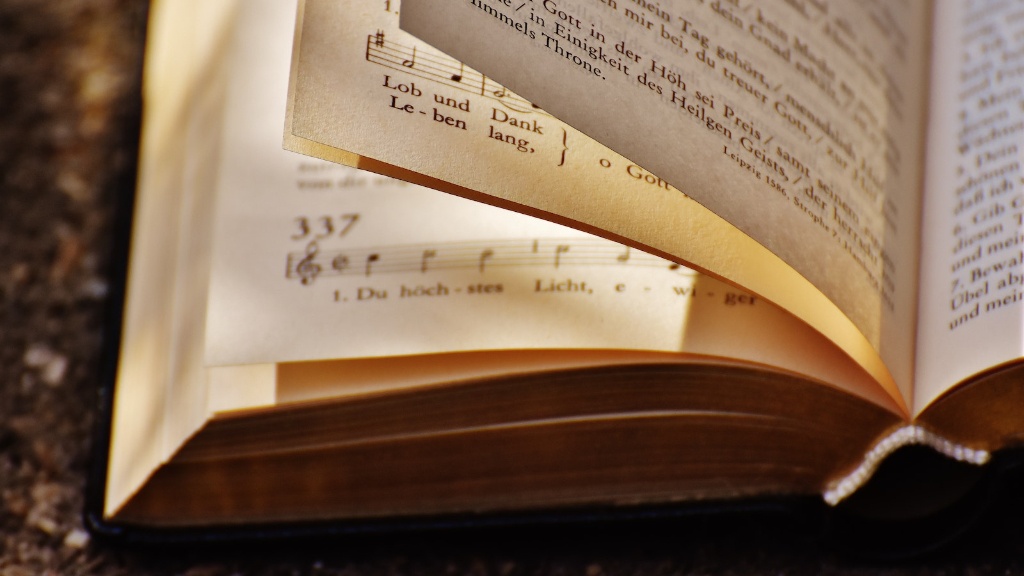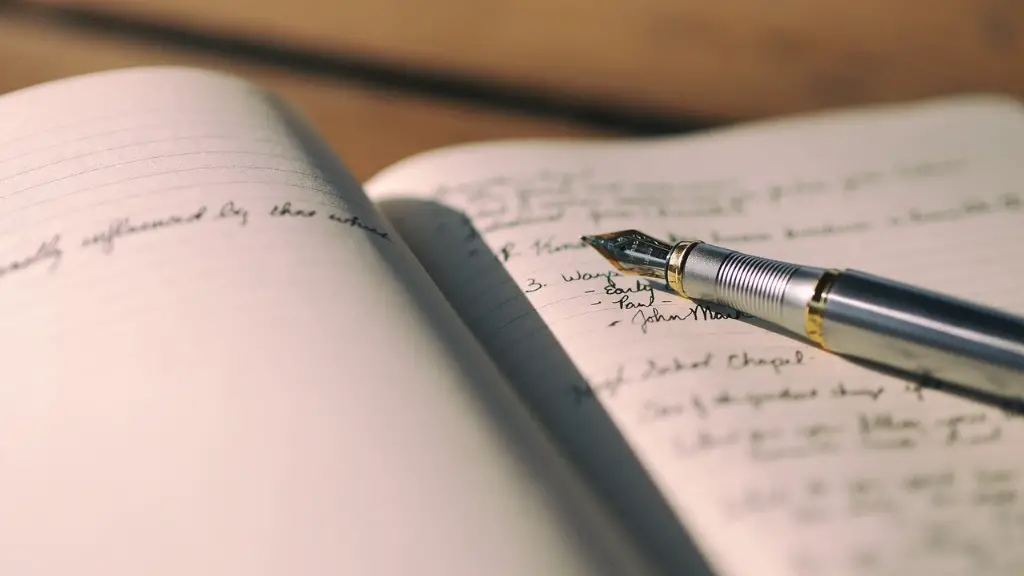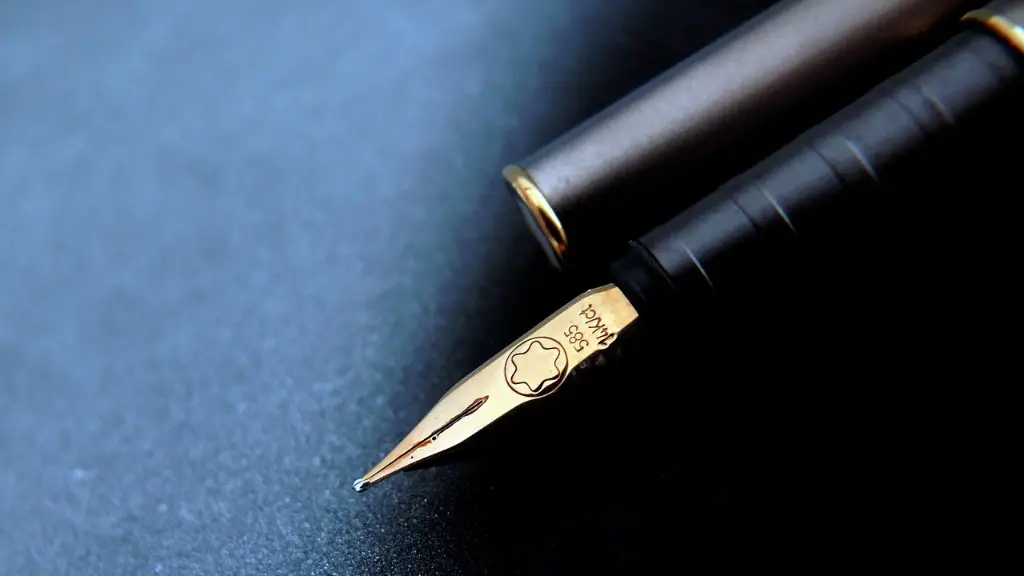Studying for a poetry test may seem like an intimidating challenge – but it doesn’t have to be. Through effective studying techniques, any student can achieve success with their poetry examinations. Here are a few tips to help you get started.
Understand the Types of Poetry
Before beginning to study, it’s important to have an understanding of the basic types of poetry. Poetry can be broadly categorized into four main genres: Lyric, Narrative, Dramatic, and Epic. Lyric poetry is the most common type and greatly relies on emotion to convey the message. Narrative poetry tells a story or paints a picture, such as epics or ballads. Dramatic poetry is about conversation, such as sonnets. Epic poetry is extremely long, often containing many characters and symbols.
Develop a Study Plan
Building a study plan is an important first step towards success with a poetry test. Start by taking inventory of the material covered by the test. Think about which topics you are confident in and those you are less confident in. This can help you form a general map of the areas that require the most studying. Focus on those with the most demanding topics.
The next step is to compile a list of activities to complete before the examination. This could include memorization, reading and discussing poetry, and taking practice tests. Be sure to spread out your studying over a few days rather than cramming all the material into one night. Give yourself plenty of time to sleep, eat healthy meals, and rest. All of these activities can help prepare you for the test.
Understand the Study Material
Learning and understanding the study material is key to passing any poetry test. Begin by reading the material closely. Pay attention to any patterns or themes in the text. Analyzing the poetry can help you determine the author’s message and intended meaning. To gain a better understanding of the material, try reading the poem out loud or discussing it with a colleague.
When studying poetry, it’s important to understand the different forms of language used. Be familiar with the various types of figurative speech, such as similes, metaphors, and paradoxes. Memorizing these terms can help you better interpret the text. Additionally, pay attention to the poem’s structure and how it affects the flow of the text.
Take Practice Tests
Taking practice tests is an effective way to prepare for a poetry test. Before the actual test, try to take at least two full-length practice exams. This will give you an idea of the types of questions you can expect on the official test. Additionally, taking practice tests can help you develop test-taking strategies that can be used during exams.
When taking a practice test, it’s important to simulate test conditions as closely as possible. This means setting a timer and completing the test in one sitting. This will give you an idea of how long it will take to complete the actual test. Additionally, it’s important to not only answer the questions correctly, but also to keep track of time to ensure you’re able to complete the test within the allotted time.
Engage in Reflection
Reflection plays an important role in preparing for any test, and poetry examinations are no exception. After completing practice tests, take the time to review your answers. Ask yourself what went well, what could be improved, and how to bridge any knowledge gaps. Doing this can help you become more confident and better prepared for the poetry test.
When reflecting on a practice test, it’s important to pay attention to the types of questions you got wrong. This will help you determine which topics need more review or practice. Additionally, consider your learning style and the best ways for you to study the content. This may include taking notes, changing your study environment, or trying out a different approach.
Seek More Resources
If you’re still feeling unsure of your knowledge after completing practice tests and reflections, don’t be afraid to look for additional resources. There are plenty of websites and textbooks available to provide further information and practice tests. Additionally, seek advice from teachers, mentors, or fellow students who may have extra guidance or tips. Utilizing the resources available to you can help you build confidence and achieve success on your poetry test.
Study with a Group
Studying for a poetry test doesn’t have to be a solitary experience. Studying with a group can be a great way to share knowledge and constructivist teaching. Reading through the material with a partner or small group can help everyone to gain a better understanding of the concepts covered by the test. Discussions and debates with peers can also help expand your knowledge. Additionally, working on difficult problems together can help strategize for test taking.
Nowadays, it’s possible to join online groups of students to study together remotely. This makes it easier to connect with peers and form study sessions, no matter where they are located. Additionally, look for student-run clubs that host events or activities related to the subject you are studying. This can be a great way to engage with your peers and gain an in-depth understanding of the material.
Use Mnemonic Devices
Using mnemonic devices can be a useful way to recall the material you’re studying. This can be helpful when you’re trying to memorize a large list of vocabulary, facts, or phrases. These devices help you to remember information by associating it with something familiar. For example, using acronyms to remember a list of poems or using rhymes to remember a particular quote. These can be helpful in quickly recalling the material during the test.
Mnemonic devices are especially useful when tackling poetry tests as they often require both memorization and analysis. For example, use a simple acronym to remember the names of the poets or their respective works. Additionally, you can use rhymes or stories to remember quotes or key phrases. By utilizing mnemonics, you can make studying more fun and effective.
Engage with the Material
Engaging with the poetry you are studying can be a great way to become more familiar with the material. Try to think of each poem as a story and explore the themes, motifs, and symbols in the text. There are no right or wrong answers – just your own interpretation and personal opinion. Additionally, writing your own poems can help solidify your understanding of the material and shed light on new understanding or ideas.
Engaging with the material doesn’t have to be restricted to just pen and paper. You can take it a step further and bring the material to life by attending a poetry reading event, or read out loud to yourself. This can help you become more intimate with the material and gain a better understanding of the author’s message.
Access Test-Taking Strategies
Learning how to effectively take a test is an important part of preparing for an exam. Understanding the structure and format of a test can help you manage your time more efficiently. This means reading directions and questions carefully, making sure you understand the question before you answer, and double checking all of your work. Additionally, developing a strategy for answering question types can increase your accuracy.
When taking a poetry test, there are certain strategies you can use to your advantage. For example, it’s a good idea to start with the easier questions first. By doing this, you’ll be able to gain a better sense of the poem without spending too much time on a single question. Additionally, it’s important to be aware of any time limits on the test. Make sure to leave enough time to answer all of the questions as well as review your work.
Stay Positive and Relax
Finally, it’s important to stay positive and relaxed throughout the process of studying for a poetry test. Stress and anxiety can often lead to poor performance. Keep a positive attitude and avoid overanalyzing the material. Additionally, make sure to give yourself plenty of rest and practice mindful activities such as yoga or meditation. This can help you stay focused and energized for the test.
Studying for a poetry test can seem daunting, but it can be made easier with the right approach. By understanding the different types of poetry, building a study plan, and utilizing the various techniques and resources available, any student can be successful with their poetry exams.





